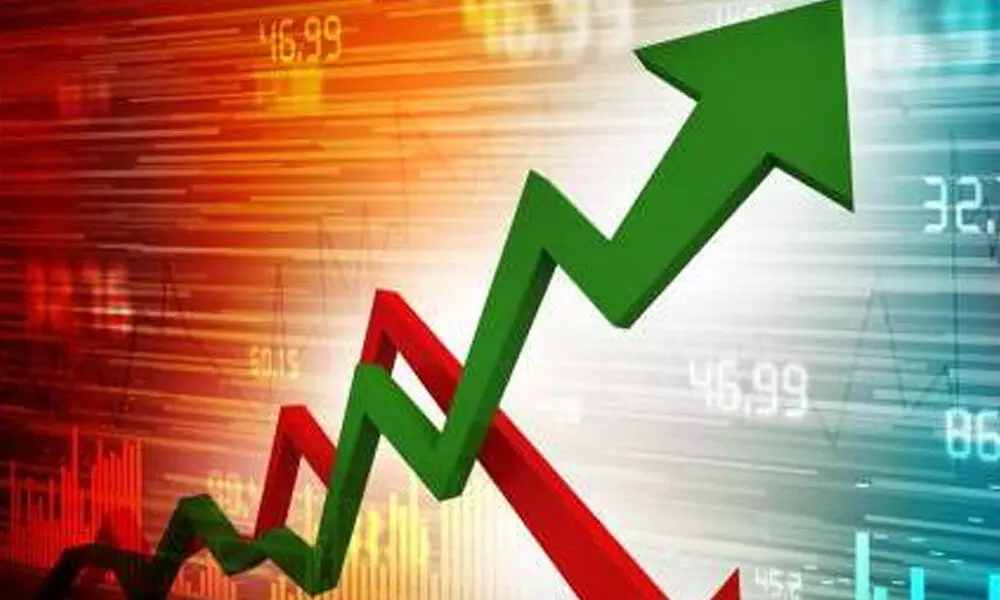Markets to remain choppy, volatile
As far as the markets are concerned one should use sharp rallies like we saw over the last two days to book profits and use sharp dips to buy some stocks but only from the large cap stocks.This volatility will stay for some time and allow trading opportunities for the risk taker. Trade cautiously and ensure that one doesn’t go overboard
image for illustrative purpose

The hostilities between Russia and Ukraine have completed 14 days or two weeks and the third week would begin from Thursday. While there is some clarity on resolution with Ukraine having agreed that they would not seek membership of NATO and would discuss ways to resolve two territories within Ukraine which were recognised as independent by Russia. These states were Donetsk and Luhansk. In the period under review from 3rd March to 9th March, we saw markets gain on three of the five trading days. BSE Sensex lost 821.57 points or 1.50 per cent to close at 54,647.33 points. NIFTY lost 260.60 points or 1.59 per cent to close at 16,345.35 points. During the period under review, Monday was a bad day when markets lost almost 3 per cent. They however more than made up the same on Tuesday and Wednesday combined. Dow Jones lost 661.32 points or 1.98 per cent to close at 32,632.64 points. The last four sessions saw Dow Jones losing ground.
In India, counting for the five states which went to polls would be held on Thursday the 10th of March. The states are Uttar Pradesh, Uttarakhand, Punjab, Mizoram and Goa. The largest of the states is UP which has 403 seats and becomes an important state for the next general election due in 2024. If the government of the day does well in these states, there could be some short-term knee-jerk reaction to the markets. Currently all focus is on the war in Ukraine and other headwinds in the global economy have taken a backseat. For example, crude oil rose from $110 dollars to $131 on Monday when markets fell sharply. While markets have rebounded, oil continues at similar levels.
Concerns about inflation in the United States and the upcoming Fed meeting where interest rates are expected to rise are not affecting the markets. No one is quite concerned as of now. The fact that FII's are net sellers to the tune of $1 billion on a daily basis is just not affecting Indian markets. The only point that is affecting markets is Russia-Ukraine. Seems odd and unrealistic.
In the current calendar year, just three primary market issues have hit the market so far. While over a dozen are waiting to hit the market, war has upset the timing and delayed tapping of the markets. Whether the change of the financial year in three weeks' time will help or not is unclear.
Let us review the market performance so far in 2021-2022. The high on the BSE Sensex was at 62,245.43 points. This was higher by 12,736.28 points or 25.75 per cent than the opening level of 49,509.15 points. We came to a low of 52,260.82 points and have recovered to close at 54,647.33 points. At this level, the gain for the year is a mere 5,138.18 points or 10.38 per cent. Similar numbers for NIFTY are a high of 18,604.45 points. The gain at the high was 3,913.75 points or 26.64 per cent compared to the opening level of 14,690.70 points. The low made on Tuesday was 15,671.45 points. Today we closed at 16,345.35 points, a gain of 1,654.65 points or 11.26 per cent.
We need to remember while markets have rebounded this doesn't look like a permanent recovery. Headwinds are affecting not only the India economy but global economy. An interesting side-line from the hostilities has been the sharp rise in wheat prices which will benefit India. Wheat prices have gained more than 25 per cent in the international markets.
Coming to the period 10th March to 16th March, markets would continue to remain choppy and volatile. While the key factor would be hostilities on the Russia Ukraine front, it would also be time to pay attention to other issues mentioned above. While aggression would suddenly end with the declaration of ceasefire, the healing and repair would take months and months. Sanctions imposed are not going to be lifted in a jiffy and the country sanctioned alone doesn't pay for them. More often than not, it's the countries that impose the sanctions as a body who end up paying more. While Russia will not be supplying crude oil under the sanctions, the effect would be borne by all of Europe who were importing crude from Russia.
As far as the markets are concerned one should use sharp rallies like we saw over the last two days to book profits and use sharp dips to buy some stocks but only from the large cap stocks. This volatility will stay for some time and allow trading opportunities for the risk taker. Trade cautiously and ensure that one doesn't go overboard.
(The author is the founder of Kejriwal Research and Investment Services, an advisory firm)

